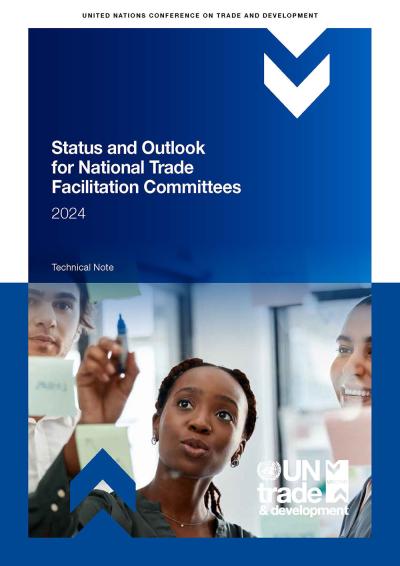
A National Trade Facilitation Committee (NTFC) serves as a multi-stakeholder platform that brings together public and private sector representatives to coordinate and implement policies and procedures aimed at facilitating cross-border trade. Over the years, NTFCs have gained wider recognition as key drivers of trade facilitation reforms. Their importance was strengthened with the adoption of the Agreement on Trade Facilitation (TFA) of the World Trade Organization (WTO) where Article 23.2 mandates the establishment or maintenance of NTFCs in all WTO member states. This requirement has in turn reinforced the relevance to UN-CEFACT Recommendation No. 4, originally issued in the 1970s.
Quantitative and qualitative research undertaken by UN Trade and Development (UNCTAD) as well as other international organizations has demonstrated that well-functioning NTFCs contribute significantly to accelerating trade facilitation reforms. However, it remains challenging to establish a direct statistical correlation between the existence of an NTFC and the successful implementation of such reforms. While 135 countries report having set up an NTFC the degree to which these committees are operational, sustainable and delivering on their mandates varies significantly.
In 2023 and 2024, UNCTAD conducted global surveys to assess the operational status of NTFCs, their activities, and the outcomes achieved. In 2023, 52 countries participated in the survey, while 62 countries responded in 2024. The findings highlight the continued need for strong domestic and international support for NTFCs, particularly as global supply chains face increasing disruptions, and higher tariffs threaten consumer’s pockets. The role of NTFCs in streamlining border procedures, reducing trade complexities, and minimizing costs is therefore more crucial than ever.
The findings of this study strongly reinforce the key principles of good practices identified in WTO document G/TFA/W/96/Rev.1 For instance, the widespread efforts by NTFCs to enhance institutional frameworks, as seen in the development of Terms of Reference and strategic plans, reflect the importance of a robust institutional setup with political backing.
The high levels of engagement with border authorities, ministries, and private sector stakeholders underscore the value of inclusive participation. Moreover, the emphasis on communication — through newsletters, public awareness campaigns, and digital platforms like the Reform Tracker — demonstrates a commitment to transparent and effective information flow.
The prioritization of capacity-building initiatives and training programs, as well as the increasing use of performance monitoring tools, aligns directly with the principles of continuous learning and accountability. These practices not only validate the guidance of this WTO’s document but also highlight the evolving maturity and strategic orientation of NTFCs globally.


